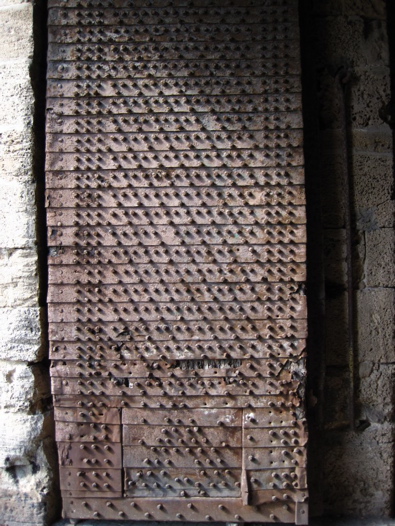The Centenary
Glimpses of an Imprisonment Lasting Forty Years
From an Interview given by ‘Abdu’l-Bahá to the Weekly Budget
September 23rd, 1911
September 23rd, 1911
SOME OF THE EXPERIENCES OF HIS FORTY YEARS IMPRISONMENT
Summary: During ‘Abdu’l-Bahá’s visit to the city of London, one of the British newspapers interviewed him about his imprisonment. ‘Abdu’l-Bahá spent more than 55 years between exile and imprisonment. The following text is limited to a description of some aspects of the forty years he spent as a prisoner.
I
n an apartment in Cadogan Gardens sits a spiritually illumined Ori- ental, whose recent advent in London marks the latest junction of the East and West.
The teaching of ‘Abdu’l- Bahá has already brought about the commingling of thousands of Englishmen and Englishwomen with Or- ientals from every quarter of the East. Upon the basis of mutual help and friend- ship and the worship of God, regardless of creed and denomination, they have joined hands with an earnestness and brotherly love contrary to the theo- ries of certain cynical poets and philosophers.
Most of ‘Abdu’l-Bahá’s life has been spent in an Eastern prison, which he gladly endured rather than abjure his faith, one of the tenets of which is the ab- solute equality of souls regardless of physical dif- ferences, such as sex and colour. He recognizes no class distinctions except those conferred by service and the spirit of brotherly love. For this and other like doctrines he was held prisoner for forty years in the fortress city of ‘Akká, in Palestine. When I requested to talk with him, I was told to come early, and called, according, at nine o’clock, for an interview. It was already mid-day to ‘Abdu’l-Bahá who rises at four, and who had seen eighteen people before his breakfast at half-past six.
Representatives of many languages and nationalities awaited him in the drawing room.
We sat in a circle facing ‘Abdu’l-Bahá who inquired if there were any questions we would like to ask. I said my editor had sent me to ascertain something of his prison life, and ‘Abdu’l-Bahá at once related in a simple impersonal way one of the most remarkable stories conceivable.
“At nine years of age, I accompanied my father, Bahá’u’lláh, in his journey of exile to Baghdád, seventy of his disciples going with us. This decree of exile, after persistent persecution, was intended to effectively stamp out of Persia what the authorities considered a dangerous religion. Bahá’u’lláh, with his family and followers, was banished, and travelled from one place to another. When I was about twenty-five years old, we were moved from Constantinople to Adrianople, and from there went with a guard of soldiers to the fortressed city of ‘Akká, where we were imprisoned and closely guarded.”
The First Summer
“We had no communication whatever with the out-side world. Each loaf of bread was cut open by the guard to see that it contained no message. All who believed in the Bahá’í manifestation, children, men and women, were imprisoned with us. There were one-hundred and fifty of us together in two rooms and no one was allowed to leave the place with the exceptions of four persons, who went to the bazaar to market each morning, under guard. The first summer was dreadful. ‘Akká is a fever-ridden town. It was said that a bird attempting to fly over it would drop dead. The food was poor and insufficient, the water was drawn from a fever-infected well and the climate and conditions were such, that even the natives of the town fell ill. Many soldiers succumbed and eight out of ten of our guard died. During the intense heat, malaria, typhoid and dysentery attacked the prisoners, so that all, men, women and children, were sick at one time. There were no doctors, no medicines, no proper food, and no treatment of any kind.
“I used to make broth for the people, and as I had much practice, I make good broth,” said ‘Abdu’l-Bahá laughingly.
At this point one of the Persians explained to me that it was on account of ‘Abdu’l-Bahá’s wonderful patience, helpfulness, and endurance that he was always called “The Master.” One could easily feel his mastership in his complete severance from time and place, and absolute detachment from all that even a Turkish prison could inflict.
Better Conditions
“After two years of the strictest confinement permission was granted me to find a house so that we could live outside the prison walls but still within the fortifications. Many believers came from Persia to join us but they were not allowed to do so. Nine years passed. Sometimes we were better off and sometimes very much worse. It depended on the governor, who, if he happened to be a kind and lenient ruler, would grant us permission to leave the fortification, and would allow the believers free access to visit the house; but when the governor was more rigorous, extra guards were placed around us, and often pilgrims who had come from afar were turned away.”
I learned, afterwards, from a Persian, who, during these troublous times, was a member of ‘Abdu’l-Bahá’s household, that the Turkish government could not credit the fact that the interest of the English and American visitors was purely spiritual and not political. Often these pilgrims were refused permission to see him, and, many times, the whole trip from America would be rewarded merely by a glimpse of ‘Abdu’l-Bahá from his prison window.
The Government thought that the tomb of the Báb, an imposing building on Mount Carmel, was a fortification erected with the aid of American money, and that it was being armed and garrisoned secretly. Suspicion grew with each new arrival, resulting in extra spies and guards.
‘Abdu’l-Ḥamíd’s Committee
“One year before ‘Abdu’l-Ḥamíd was dethroned, he sent an extremely overbearing, treacherous and insulting committee of investigation. The chairman was one of the governor’s staff, Árif Bey, and with him were three army commanders varying in rank.
